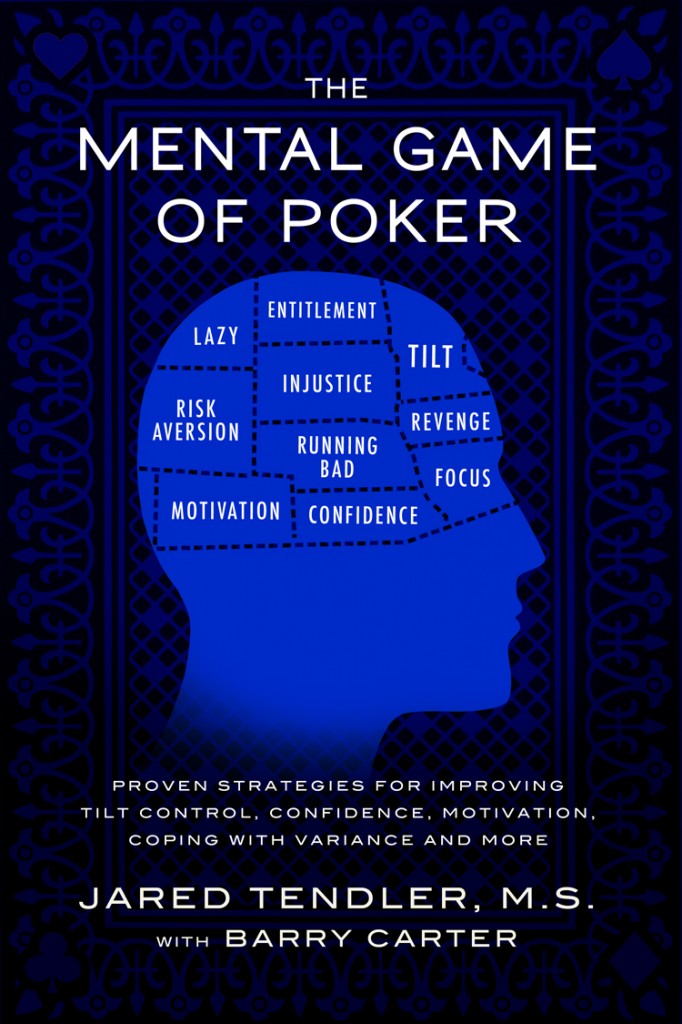Previous part of the book “Mental Game of Poker”: Tilt of not wanting to lose, competitiveness, losing money
5.4.3 Belief that you can win every hand
Although it is logically difficult to admit that you believe you can win every hand or every session, there are many players who believe this. It sounds illogical because they understand that variance would never allow it to happen. Knowing that it is illogical does not stop such players from believing that one day they will become so good that they will never lose.
Of course, poker tries to fuel this kind of thinking. When things are going well, it seems like this game is an ATM, constantly giving out money. It really starts to feel like you are winning every dealt hand. The feeling is really good when you win everything, especially when it lasts for a longer period. Big wins lead to dreams about how great it would be if you never lost. People dreaming of winning the lottery think similarly; they think about what they would do with that money and how it would change their lives.
Of course, this is not a lottery, but poker. Although it may seem that some of the recent WSOP main event winners have won a version of the poker lottery, if everyone were such good players, poker would not be profitable. The fact that you cannot win every hand is the main reason why you can have an edge in this game and why so many worse players are willing to play with you. Poker is not an ATM; it is more like a slot machine that is ready to pay out for your edge (minus the rake). To profit from your edge means that you will have to return a large portion of your winnings back – sometimes in very unpleasant ways.
If successful periods make you think that money is easily won in poker, then you will hate losing because losing will destroy your dream. Solving this problem involves a twofold improvement – how you handle both wins and losses. First, you need to get rid of the illusion of easy money. Also, use the methods below to eliminate the false belief that you can win every hand:
- Preparation: Strengthen your focus on making good decisions, following the action at the table, and everything else needed for good play. Remember why losses are an important part of poker and why the money you save by making the right fold is just as important as the money you win. Although it may seem repetitive, a well-solved problem is one that you do not need to return to and that no longer requires attention. Until that moment – long work.
- Performance: If losing one hand causes even the slightest irritation, then use injective logic after each loss. This will prevent emotions from building up and delay tilting. Since winning is also part of the problem, use injective logic when emotions become too positive as well.
INJECTIVE LOGIC: IT IS IMPOSSIBLE TO WIN EVERY HAND. FOCUS ON PLAYING EACH HAND WELL.
- Evaluation: Regardless of whether the problem is caused by winning or losing, use the 5-step protocol to dismantle the bad and create the correct logic.
- Forget easy money: Prove to yourself why you do not want this desire to come true. And every time you think about it, better redirect your thoughts and actions to something that is actually achievable.
5.4.4 Lost skills
Players often mistakenly believe that losing also means losing skills. When they lose while tilting, they start to think they are worthless. But this is just an illusion of the mind. Skills learned to the level of unconscious competence belong to you and will never disappear – even when tilting.
This illusion arises for three reasons:
- Equating money with skills. If you lose money, and money equals skills, then you immediately become a bad player. You also dislike losing because when other players win, you think they might be that much better than you. If it is possible that your skills can suddenly disappear, then it is possible that opponents' skills can suddenly appear.
- Unconscious competence skills are unconscious. You do not need to think about them, and for that reason, they are taken for granted.
- Skills that are still in the learning process do not appear when you are tilting and may seem to have disappeared, perhaps even forever, along with your entire game.
Here is how you can dismantle this illusion:
- Improve your ability to recognize variance, your own, and your opponent's abilities. In case of a loss, you will be able to determine the true quality of your game and will not immediately think that you are a bad player. Moreover, if it turns out that you played well even though you were unlucky, that knowledge will bring good feelings.
- Know which game skills are trained to the level of unconscious competence. Even if they are just the basics, knowing them proves that skills cannot simply disappear, even when tilting.
5.4.5 When losing becomes personal
Competing with other players, especially in HU, turns winning into a personal challenge where much more than just money is at stake. Losing means that the opponent is better than you and he can feel superior, even if he just got lucky. Tilt can be triggered by the mere thought that the other might think he is better than you. And if this happens against a player with whom you have a playing history, the tilt is even greater.
Although your actions may not necessarily turn into revenge, the strategies outlined in the “revenge tilt” section are related and will help you solve this version of the tilt of not wanting to lose.
5.4.6 Losing hurts more than winning feels good
For many players, the pain of losing is stronger than the joy of winning. This means that they compete not only for victory but also to avoid the negative feelings that come with losing. Competitive people can become harsh on themselves when they lose. Self-criticism manifests in various ways, asking themselves rhetorical questions like “Why am I so worthless?” or “How can I become good if I can't beat this fool?”. Regardless of how self-criticism manifests, it contributes to other factors described in this section and makes losing painful. In fact, it becomes so painful that the joy of winning never matches it. Winning becomes just an escape from the agony of losing.
Players who think that winning is just an escape from losing are the same ones who think that winning is the answer to the pain of losing (“Everything will be fine if I just win everything”). Winning allows a temporary escape from the agony of losing, but since losses are inevitable in poker, it is better to solve this problem fundamentally rather than just temporarily deceive yourself.
The real problem is that there are more reasons to feel bad about losing than there are reasons to feel good about winning. So, you anticipate losing to feel even worse, and when it happens, you start tilting even more. This flawed thinking will disappear when you eliminate unnecessary logic and the flawed reasons why you think losing is painful. The first step in solving this problem is realizing that the title of this topic is just an observation, not a natural law of human nature. It is not constant. To improve, use the methods described in this part of the book and find out the reasons why losing hurts more than winning brings joy.







